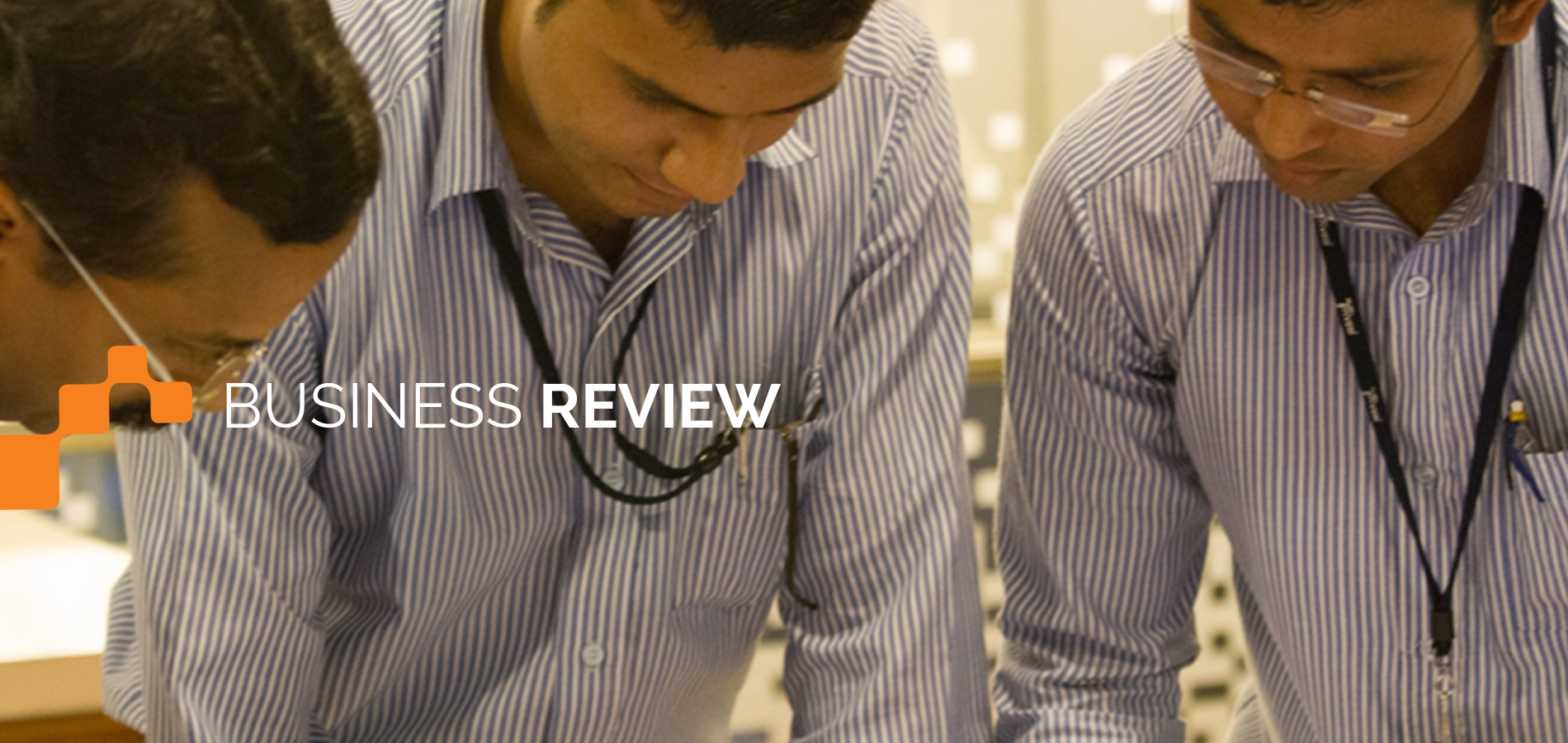Business Review
Domestic Market
While the Indian Steam Turbine market for under 30 MW size has remained flat for the two consecutive years of FY 14 & FY 15, at around 700 MW of orders booking, the market for FY 16 has shown a decline by about 20%. The main contributor to this decline has been slow order booking in the sugar sector by around 36%, due to stress in the sector and drought in major sugar producing states like Maharashtra, Karnataka etc. However, the Company maintained its share of order booking during the year from sugar co-generation at the levels of the previous year, while the share of process co-generation went up from 35% in FY 15 to 43% in FY 16. Domestic order booking for the Company in terms of value stood at 2.1 billion in FY 16, which is a decline of 19% in comparison to the previous year. The segments from which the Company received orders during the current financial year are:
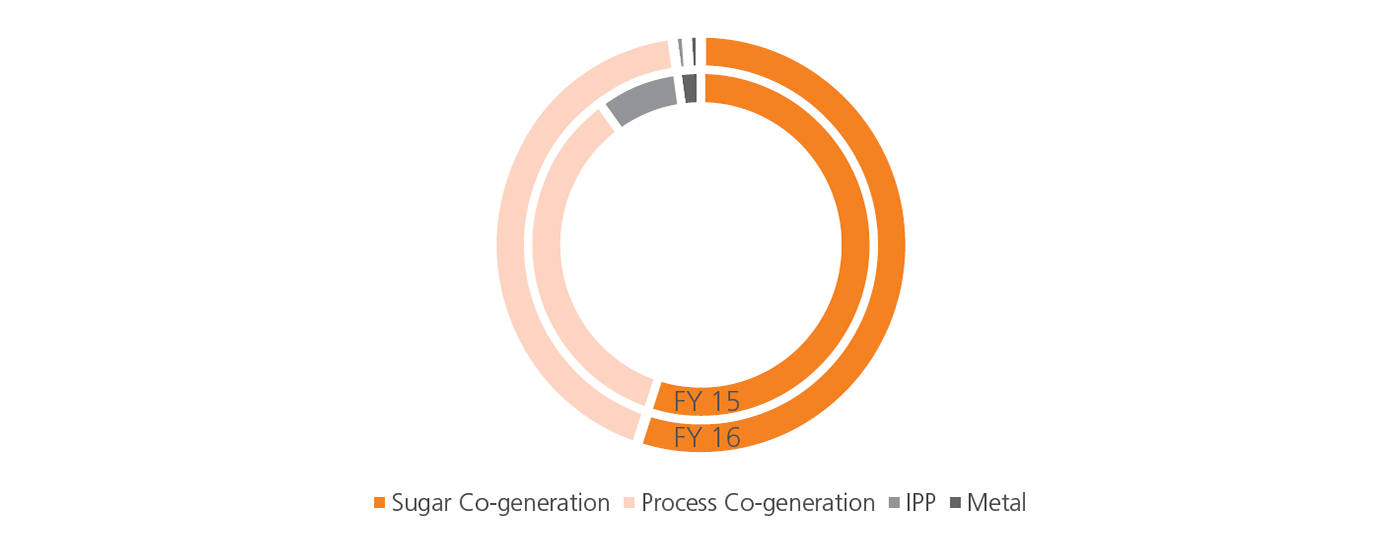
The Company has a good pipeline of enquiries, which are spread across process co-generation 43%; sugar co-generation 25%; IPPs 12% and metals 20%.
Exports
The focus on exports has paid dividends and the Company has started gaining momentum in the export market over the past couple of years. FY 16 has been an excellent year for the international business, with product order booking of 4 billion - a strong growth of 61%. The broad share of export order booking on a regional basis is as under:
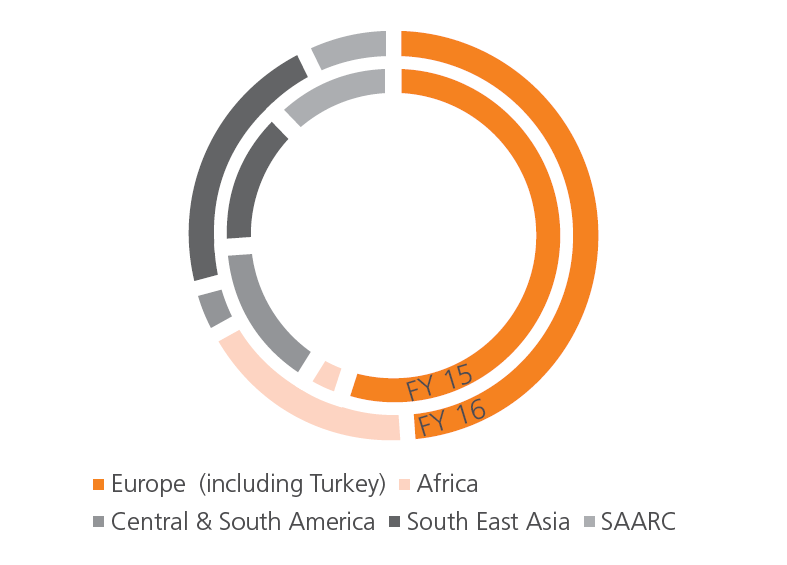
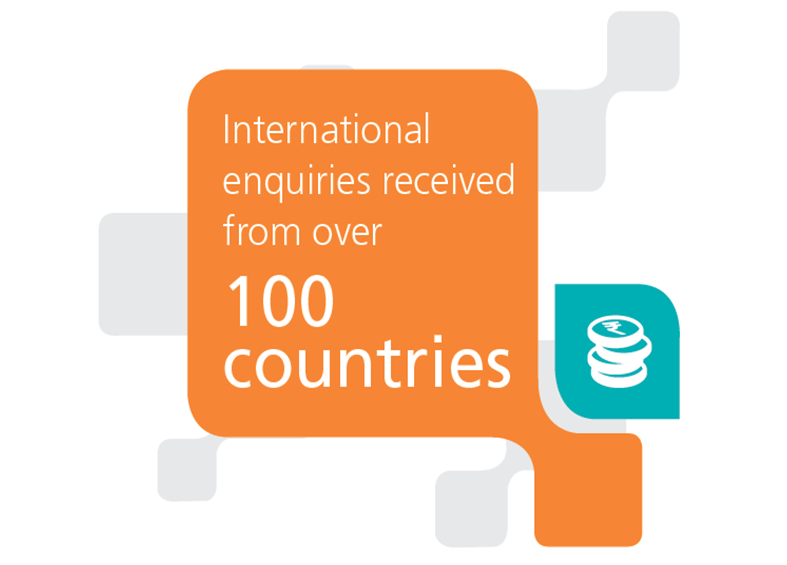
The major segments of exports are from renewable, including
waste to energy in Europe and for other markets it has been a
mix of segments such as sugar, paper, apart from renewable etc.
The foray into new markets in Latin America, Africa and certain
European markets, with potential to enter into CIS, North &
West Africa etc., should support the Company’s further growth
in the export market. The Company’s strategy to strengthen its
presence in the existing markets of Philippines & Middle East
regions, achieving higher penetration in Thailand and Korea,
and enhancing market position in Europe, Southern Africa &
South East Asia should also help propel continued growth in
export business going forward. The Company has a strong
enquiry pipeline from over 100 countries.
The Company has been continually focussing on its brand building in various geographies. A key initiative taken in this regard by the Company in FY 15 was to broad-base its international marketing presence by setting up subsidiary companies / offices in strategic locations. This initiative is gaining momentum, with the Company’s presence established in four regions already and some more regions expected to get added in FY 17.
Aftermarket Services
The Aftermarket Services team initiates a partnership with the
customer from despatch of turbine and extending through the
lifetime of the turbine. The nature of aftermarket business is
ongoing and it lays the foundation for good references for
future business.
The Company has a network of service centres strategically
located within close proximity of customers, which ensures
that TTL engineers reach customers’ site faster, thus reducing
downtime. This is being further strengthened with physical
presence in London, Dubai, Indonesia and South Africa. This
will give confidence to the customers, and this locational
advantage can also be leveraged to secure product orders and
long-term service arrangements.
The Company’s foray into refurbishment of other makes of
turbines in a focussed manner has started yielding results,
particularly in international markets. There has been a significant
growth in business from specific regions, and this momentum
will be carried forward with substantial growth planned for the
next few years.
During the year, the order-booking and revenue from this
business segment showed good growth and helped the
Company achieve higher levels of profitability. In FY 16, while
the order booking grew by 14%, the sales increase was
only 7%. However, the share of exports in aftermarket sales
increased by 15%.
Manufacturing Facility
The manufacturing facility of the Company is located on an
11-acre green campus in Peenya Industrial Area in Bengaluru.
The facility is equipped with modern CNC machines and
equipment dedicated to machining of high precision turbine
components, adhering to international quality standards.
The CNC machinery includes 4 and 5 axis vertical machining
centres for blades, mill-turn centres for rotors, and CNC gantry and CNC VTL for casing machining. There are specially
designed test beds for in-site assembling and testing of
turbines, equipped with remote controlled data acquisition
system to automatically monitor the turbine performance
while testing. The facility also boasts of high-speed vacuum
balancing tunnel to carry out precision balancing of all types
of rotors. The facility can produce around 150 turbines per
year. It is certified with ISO 9001 QMS and ISO 14001 EMS
standards, and has adopted excellence in operations through
stringent practice of the principles of TQM, TPM, lean 5S,
Kaizen, QCs, etc.
The Company has also embarked on an expansion plan to
increase the manufacturing capacity of the turbines to 350
per year. It has acquired a 24-acre plot of land in Karnataka
Industrial Areas Development Board (KIADB), Sompura, near
Bengaluru, and has started construction activities at the new
facility, set to be completed in a phased manner. The new
facility has been designed to be a benchmark in turbine
manufacturing, equipped with the most modern shop floor,
R&D facility and a Learning Centre. The first phase of the new
facility is expected to be ready for operations during FY 17.
Technology and R&D
The Company has an advanced in-house R&D department, which is engaged continually in the development of robust, high-power dense, cost-effective and highly efficient turbines to fulfil the requirements of the changing global market. The department has a development roadmap to keep the Company aligned to high international standards with respect to products of global manufacturers in a competitive environment. TTL is becoming a preferred industrial partner for Indian Government-funded programmes, and active proposals are being submitted to MNRE, TERI and Ministry of Power.
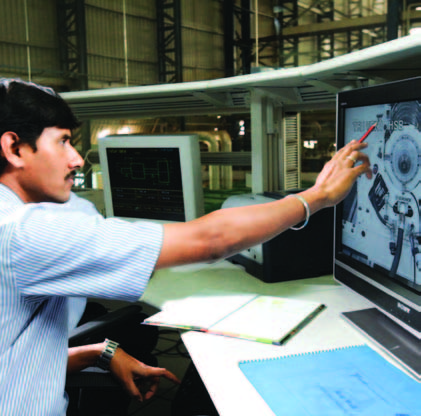
The technology developed is extensively validated before commercial use, and the performance parameters in the field are closely monitored to make modifications, as may be considered necessary. Thus, the Company has welldefined processes for development, testing, field feedback and continuous advancement of technology through in-house processes and with global associates.
As in the previous year, the Company was able to develop cost competitive models, with much reduced carbon footprints so as to provide power solutions needed by its diverse international and domestic customers. In line with the industry trends, the Company has been diversifying into different types of steam turbines and other renewable energy products focussing on high efficiency cycles. Even as such products become a reality in the near future, the Company is constantly upgrading and improving its steam turbine designs for optimal performance to meet the increasing power solution requirements from international and domestic customers.
Intellectual Property Rights
The Company’s R&D programme is focussed on technological
upgradations, necessitating safeguard of its Intellectual
Property portfolio. A dedicated team of specialists gets involved
from the planning and conceptualisation stage to the final
product stage.
Over the years, the Company has developed a comprehensive
IP strategy for creation and protection of long-term IP assets to
secure its technological know-how. Reflecting its global focus,
the Company constantly undertakes patent and industrial
design filings in various international markets. The Company
has, in recent times, filed patent applications and design
registrations in India, Europe, South East Asia, and the U.S. In
the future, the Company plans to file patent applications and
design registrations in new international markets which are
catered to by its products.
During the year, the Company made 28 IP filings, thereby
increasing the IP filings in India to 141 and in other countries
to 29 filings. A substantial number of Intellectual Property
Rights have already been awarded to the Company in various
jurisdictions. The Company was also adjudged the winner of the
National IP Award 2016 in the category “Top Organisation for
Designs” by the Ministry of Commerce & Industry, Government
of India.
Supply Chain
Efficient and robust supply chain is one of the critical success factors for the Company. A well-defined purchase policy provides guidelines for the Company’s procurement function encompassing all its key aspects. The emphasis is on cost control, quality, timely delivery, working capital management, consistency and transparency. The Company provides an even playing field to the supply chain partners, sharing with them its annual business plan, market dynamics, as well as new product developments and expectations.
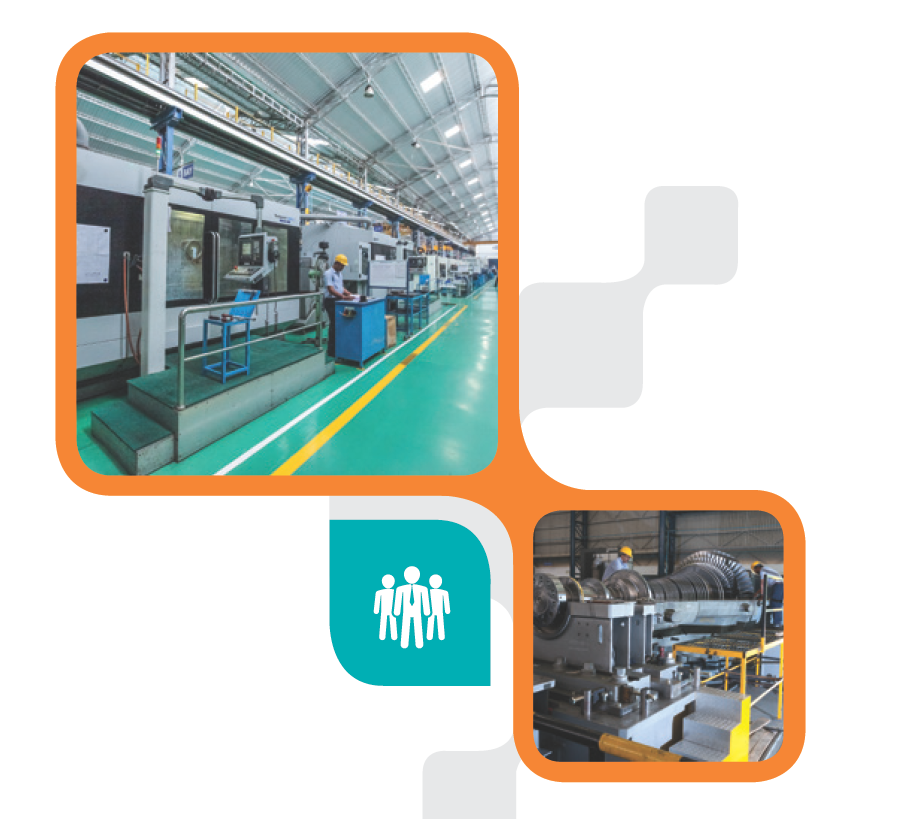
This helps the supply chain partners realign their businesses with the Company’s vision and requirements. In the backdrop of an expanding export market, the supplier partners are encouraged to enhance their capacities so as to reduce the lead time and raise quality standards to meet the global benchmarks. In this process, the Company is working closely with the supplier partners, and provides training to improve their manufacturing process and reduce rejections.
There is a strong realisation and acceptance of ‘Zero Defect’
and ‘Do it right the first time, every time’ concepts by the supply
chain partners and, to ensure the adherence to these concepts,
supplier upgradation programmes are regularly conducted and
suppliers are evaluated using structured parameters & tools.
Existing supplier partners are periodically re-assessed through a
third party agency in order to ensure that the quality standards
are maintained and technology is upgraded in line with the
requirements. For new suppliers, a well-crafted qualification
process is in place along with EHS requirements. All the supplier
partners are governed by a strict code of conduct and nondisclosure
agreements.
The Company has successfully managed its input costs by value
engineering in the designs and materials, developing new cost-effective
supplier partners and sourcing raw materials from
some of the most cost-effective countries around the globe.
The Company’s supply chain always strives to be a value creator
by way of implementing strategic initiatives every year.
Quality Assurance
The Company has implemented a process-based management
structure, where the processes are evolved and owned by
process owners and focussed on customer and continuous improvements. The Company is ISO 9001:2008 certified, with
a sound quality management system integrated throughout
the organisation.
TTL ensures that its network of suppliers and dedicated subcontractors
also comply with these standards through supplier
qualification, QAPs and Standard Operating Procedures (SOPs)
to maintain comprehensive quality control of turbine and its
auxiliary systems.
Products are designed, manufactured and commissioned in
accordance with the International quality norms, such as API,
ASME, AGMA, NEMA and IEC, among others. Systems are
developed to address country-specific product requirements.
These systems have helped TTL to meet the stringent
requirements of export customers, such as CE/PED and GOST
certification.
TTL has adopted the `Zero Defect’ concept to quality, which
is supported by tools and techniques like visual management
system, root cause analysis, followed by CAPA, DWM, DMAIC,
Kaizen, SQIP (Supplier Quality Improvement Programme),
SQDCM, Quality Circles, and a rigorous automated Customer
Complaint Resolution System.
“Kaizen” movement was started in the Company in 2010 to
inculcate a culture of continuous innovation and improvements
throughout the organisation, involving people at all levels.
The movement continues to provide significant benefits in
productivity, quality, cost and EHS. TTL regularly participates in
All India Kaizen events organised by CII-TPM Club of India, and
has bagged several awards.
Human Resource
The Company has adopted diverse methods to build its
organisational capability continuously, which will enable it to
sustain competitiveness in the global market. It believes in
building a robust talent pipeline by inducting fresh engineers
through a structured selection and training programme. This
initiative, which started a decade ago, has yielded good results
in nurturing talent specific to the business. The young engineers
so trained grow with the Company to occupy key roles.
The focus of the Company on development of human resources
has contributed significantly in achieving the business goals,
by building and enhancing technical capabilities amongst
the people through innovative training and improvement
programmes across the functions. This process of engagement
and involvement through ongoing / special projects has created
learning opportunities for the employees. Other initiatives
to foster employee engagement like “Skill enhancement
programme”, “Capability building”, and “Creating future
leadership programme” are also being conducted.
The Learning Centre is the nodal point for both employees
and customers, training them on a continuous basis with
regards to Product and Operations & Maintenance of Steam
Turbine Generator Islands.
TTL believes in providing theme-based annual training to
employees. In FY 16, the theme was “Global Customer
Satisfaction through Process Approach”. Apart from
the “Design, Review, Verification & Validation Training
Programme”, other programmes like “Site Operational &
Diagnostic, supported/assisted by Remote Monitoring System
(RMS)” was introduced for a detailed study of TG Island at
the customer site. This was a significant step in behavioural
assessment of the product. The officers in the Research &
Development and Engineering departments were trained in
this programme, and the RMS has been put to effective use
for product development, including Transient Operational
Regime.
The Company continued with the “Advance Product
Knowledge Upgradation” programme for its Customer
Care Engineers, improvising the behavioural aspects of
the programme with outbound experiential learning. The
“Supplier Quality Improvement Programme (SQIP)”, as part
of “Continuous Improvement” training programme for
suppliers, also continued in FY 16.
Computer-Based Product Training (CBT), including display
models, is an effective and comprehensive self-learning aide
on turbine technology developed by the Learning Centre. CBT module is upgraded on a continuous basis in order to
cover the latest technological changes and bring in innovative
processes.
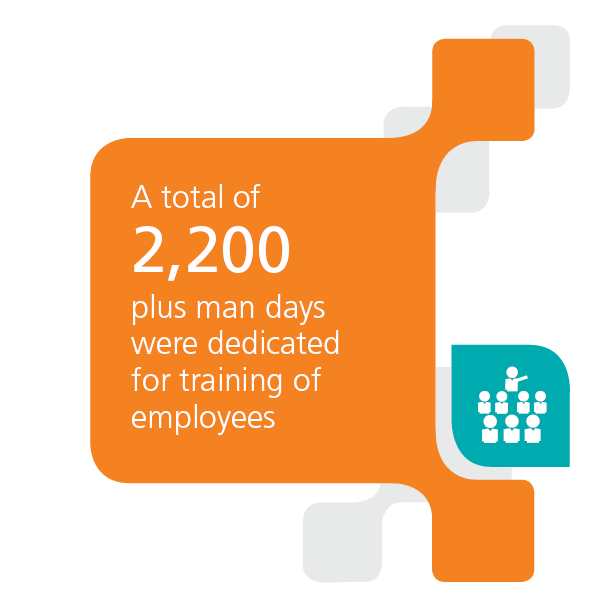
A total of 2,200 plus man days were dedicated to training
of employees during the year, which was 15% higher in
comparison to FY 15. Similarly, 12,000 plus man-days of
training were provided to the Graduate Engineer Trainees
before being inducted into their relevant departments.
FY 16 also witnessed the induction of Diploma Engineers
for assembling of higher range of turbines, trained at the
Learning Centre.
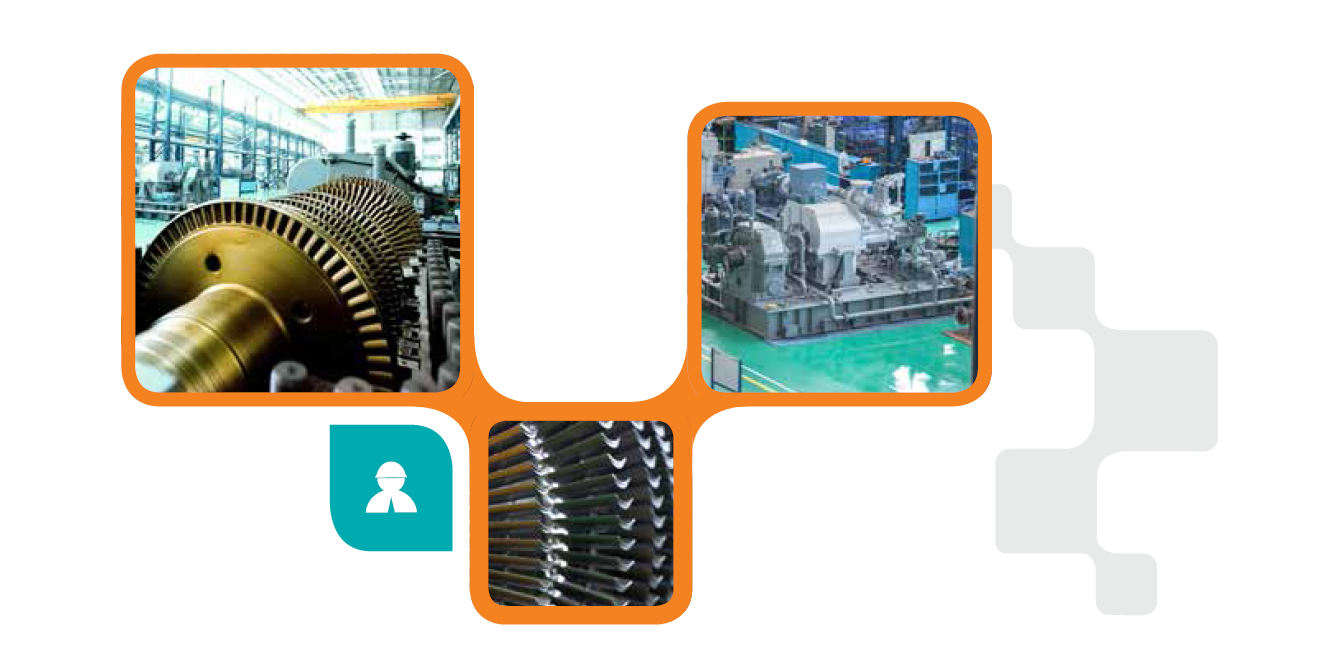
Environment, Health & Safety (EHS)
During the year, the Company launched an organisation-wide
awareness programme that aimed to improve safety and
security by changing “at-risk” behaviour to “safe” behaviour,
and by fostering a more collaborative working environment.
This included training, coaching and greater accountability
for supervisors, along with broader employee engagement
through peer-to-peer feedback.
The Company’s safety practices have contributed to zero
reportable accidents during the last five years, through
implementation of cross-functional teams that work to remove
risks from the work process. Cross-functional teams comprised
representatives of both labour and management, used
structured protocols to identify methods to reduce or eliminate
workplace hazards.
Safety Culture Change: An assessment was made on the
current state of the organisational safety management system
by an expert organisation working in this field. A review of all
divisions was conducted and recommended for certification
to the standards of OHSAS 18001:2007. The certification is
expected to be completed by October 2016.
Water Recycle Systems: The existing waste-water treatment
system in the plant was renovated for leak-proof water supplies
to the largest zone of landscape irrigation by contributing to
peak demand during summer months.
Industrial Hygiene & Legal Compliance Audits: Ambient
air monitoring study for particulates and gases, ambient
noise monitoring study, and drinking water analysis are being
conducted on regular basis as per the norms specified by the
Karnataka State Pollution Control Board. Results were below
regulatory limits.
Legal and Environmental Audits are part of the
Environmental Management System (EMS) that measures
performance against regulatory and management standards.
The Company’s Environmental Management System (EMS)
is a comprehensive approach to environmental management
and continual improvement, which is certified in line with ISO
14001:2004 standards. Audits are being conducted on half
yearly basis by a reputed organisation, which is recognised by
over 50 accreditation bodies. The Company is complying with
all legal and environmental requirements.
Outlook
Though the Government policies have started bringing positivity in the market sentiment, growth in industrial capex is yet to be seen in the Indian sub 30 MW steam turbine market. The impact of drought on the sugar and biomass industries may affect the order-booking. However, due to lower estimated sugar production for the sugar season 2016-17, the sugar companies are expected to be financially much better off, which in turn may result in capex for co-generation. The trend of projects going on hold is expected to continue for some more time. However, some respite for the market is possible due to increase in demand from process co-generation industries.
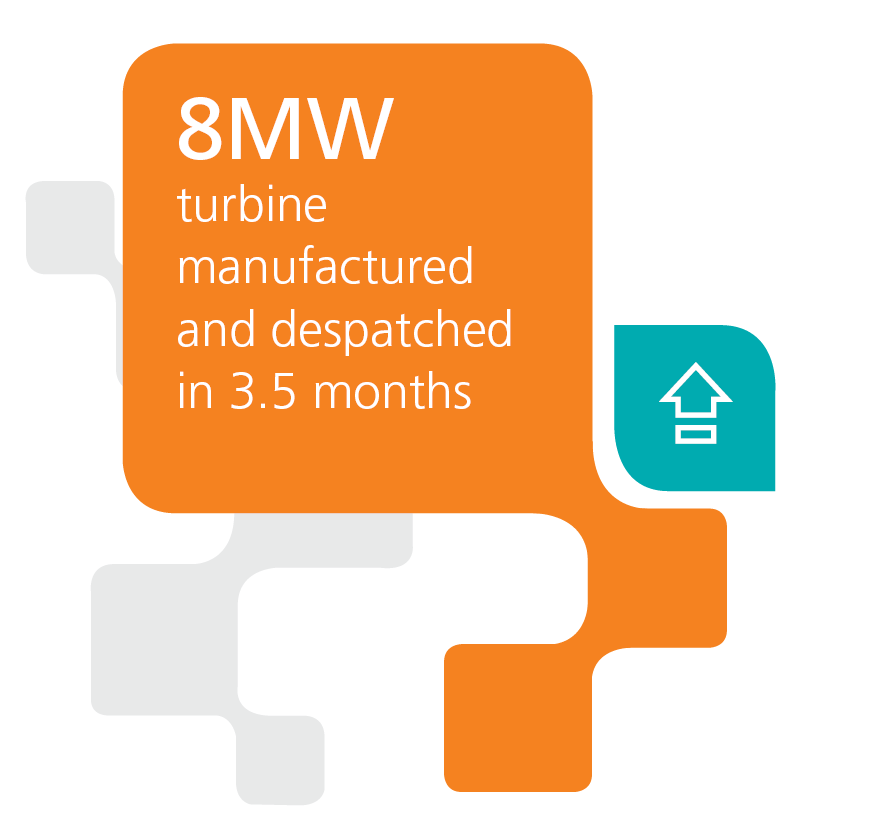
It may result in renewal of industrial capex in many sectors, which may boost industrial investment and create favourable business conditions.
In the international market, the economic recovery is expected
to take some more time. The sugar segment, globally, is
expected to see new investment in capex in view of improved
outlook and the reality of demand exceeding supply. The
Company is expected to exploit the under-penetrated markets
as well as new markets. Expansion through global subsidiaries
and increased emphasis on service business (relating not only
to Triveni make, but also other turbines makes) are expected to
help the business growth in the international markets.
The growth potential for TTL in the international market is
huge, as the Company is yet to tap many new geographies and
new segments. With continuous focus, it is expected to keep
the TTL order-booking on a growing trend, offsetting the drop
in domestic market. Some of the segments of focus, going
forward, will be biomass, waste to energy, paper, process cogeneration,
palm oil segment etc.
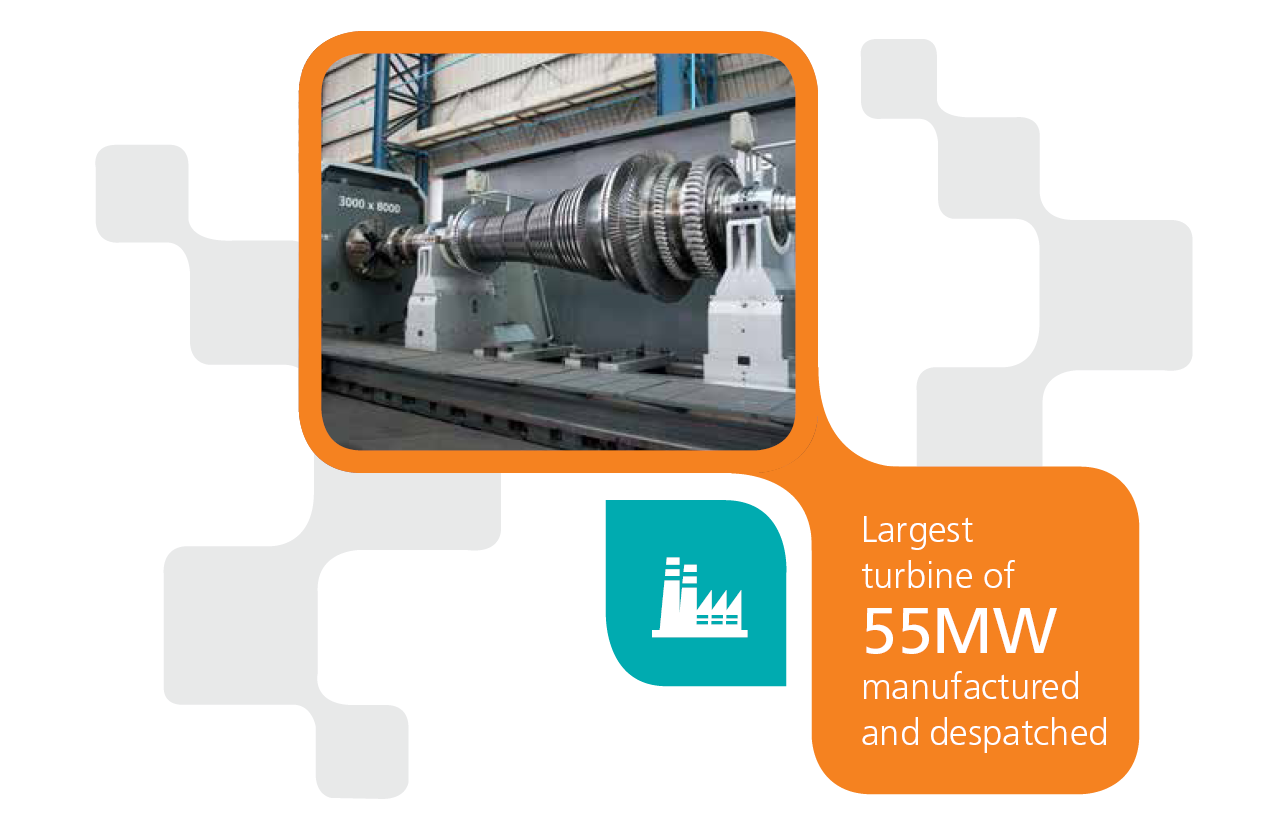
GE Triveni Limited (GETL)
GE Triveni Limited, a joint venture with General Electric, is a
subsidiary of the Company. GETL is engaged in the design,
supply and service of advanced technology steam turbines with
generating capacity in the range of above 30-100 MW.
GETL offers products, manufactured to international standards
of quality and reliability, with best-in-class efficiencies. The
flange to flange turbine is manufactured competitively at TTL’s
world-class facility located at Bengaluru, and the complete
project is executed by GETL in accordance with GE’s procedures
and processes, which include certification of suppliers,
adherence to environment and other standards.
GETL despatched its first large-sized international turbine order
in FY 16, which helped in achieving growth and profits in FY 16
in comparison to FY 15. The despatches of other two turbines,
which is the part of multiple turbines order, got shifted into the
next financial year due to logistics constraints.
On the order-booking front, the JV got a breakthrough order
in a new segment which, upon execution, will help market
the same in other geographies in the future. Similarly, the
commissioning of the large-sized turbines should also help
in getting more orders in the future. The JV has currently a
good pipeline of enquiries, which should facilitate in achieving
a good order inflow in FY 17. The Indian market for the above
30-100 MW segment is yet to see any revival and the Company
believes that there is still some time to revive the domestic
segment of the JV product line.
